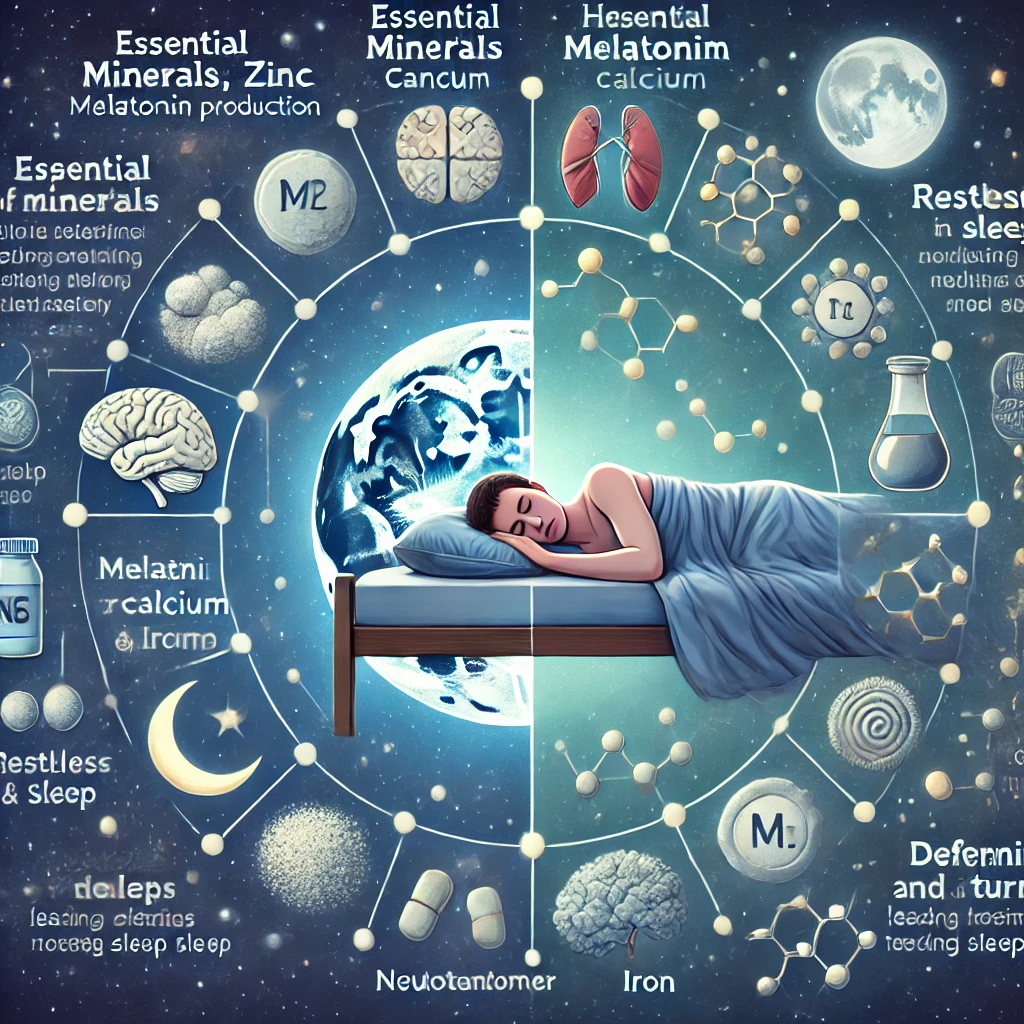How Mineral Deficiencies Can Disrupt Your Sleep

Quality sleep is one of the most important pillars of health—yet millions of Americans struggle with insomnia, nighttime waking, or restless sleep. While stress, caffeine, and poor sleep hygiene often get the blame, there’s another, often-overlooked cause: mineral deficiencies.
At Sheen Vein (Aesthetics and Functional Medicine) in St. Louis, we take a root-cause approach to sleep problems. We know that certain minerals play a direct role in calming the nervous system, regulating melatonin, and relaxing muscles—all critical processes for falling and staying asleep.
The Sleep–Mineral Connection
Your body needs a variety of minerals to function properly. Some act as cofactors for enzymes that produce calming neurotransmitters. Others help regulate electrical signals in muscles and nerves. When these minerals are lacking, the body can have trouble shifting into a restful state.
Here are the most common mineral deficiencies linked to poor sleep:
1. Magnesium
Magnesium is often called the “relaxation mineral,” and for good reason. It helps regulate the parasympathetic nervous system—the part of your body that promotes rest. Magnesium also:
- Supports the production of GABA, a calming neurotransmitter that helps you wind down
- Helps regulate melatonin, your body’s sleep hormone
- Relaxes muscles to reduce nighttime tension and cramps
Signs of magnesium deficiency: Muscle twitching, anxiety, headaches, difficulty staying asleep.
Sources: Dark leafy greens, almonds, pumpkin seeds, avocado, magnesium glycinate supplements.
2. Calcium
Calcium isn’t just for strong bones—it plays a role in melatonin production and helps the brain use tryptophan to make serotonin, another sleep-regulating neurotransmitter. Low calcium can contribute to nighttime restlessness and difficulty falling asleep.
Signs of calcium deficiency: Muscle cramps, brittle nails, tingling sensations.
Sources: Dairy products, fortified plant milks, sardines, leafy greens.
3. Zinc
Zinc influences sleep indirectly by supporting healthy immune and hormonal function. It also helps regulate cortisol, the stress hormone that can keep you awake when elevated at night.
Signs of zinc deficiency: Frequent colds, hair loss, slow wound healing, changes in taste or smell.
Sources: Oysters, beef, pumpkin seeds, lentils.
4. Iron
Low iron levels—especially when severe enough to cause anemia—can contribute to restless legs syndrome (RLS), a major disruptor of sleep. Iron is also needed for dopamine production, which plays a role in regulating sleep cycles.
Signs of iron deficiency: Fatigue, pale skin, hair loss, shortness of breath, nighttime leg discomfort.
Sources: Red meat, poultry, lentils, spinach, iron supplements (only under medical guidance).
5. Potassium
Potassium works alongside magnesium to help relax muscles and maintain healthy nerve signaling. A deficiency can lead to muscle spasms, heart rhythm changes, and frequent nighttime waking.
Signs of potassium deficiency: Muscle weakness, cramps, irregular heartbeat.
Sources: Bananas, sweet potatoes, beans, avocados.
How Mineral Deficiencies Lead to Sleepless Nights
When you’re deficient in these key minerals, your nervous system is more likely to stay in “fight or flight” mode instead of transitioning into “rest and digest.” This can cause:
- Difficulty falling asleep
- Light, fragmented sleep
- Restless legs or muscle cramps
- Early morning waking
Over time, chronic poor sleep can worsen the deficiency, creating a cycle that’s hard to break without targeted intervention.
Functional Medicine’s Approach to Sleep and Minerals
At Sheen Vein (Aesthetics and Functional Medicine), we don’t just hand you a sleep aid and send you home. We start with a comprehensive evaluation that includes:
- Advanced nutrient testing to measure mineral levels and detect imbalances
- Thyroid and hormone testing to rule out other sleep disruptors
- Lifestyle and diet review to identify patterns that may be depleting minerals
Once we understand the root cause, we create a personalized plan that may include:
- Adjusting your diet to include mineral-rich foods
- Using targeted supplementation (magnesium glycinate, zinc picolinate, chelated calcium, etc.)
- Addressing gut health to improve nutrient absorption
- Improving sleep hygiene for lasting results
When to Seek Help
If you’ve tried the usual sleep tips—like limiting caffeine, avoiding screens at night, and sticking to a bedtime routine—but you still toss and turn, it may be time to check your mineral levels. Especially if you also have symptoms like muscle cramps, hair loss, or frequent illness, nutrient testing can reveal hidden deficiencies that are sabotaging your rest.
Bottom Line
Mineral deficiencies—especially in magnesium, calcium, zinc, iron, and potassium—can quietly disrupt your sleep and overall health. The good news is that with proper testing and a functional medicine approach, restoring these minerals often leads to deeper, more restorative sleep.
Ready to find the root cause of your sleep problems?
Our St. Louis functional medicine team can help you restore nutrient balance, calm your nervous system, and finally get the rest you deserve.
Learn more about our Functional Medicine services »
Schedule your consultation today »